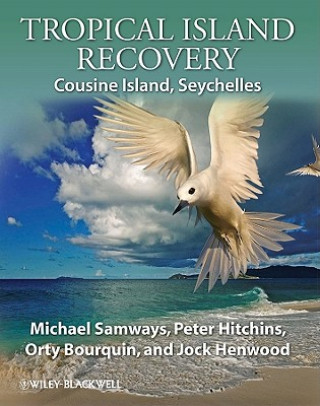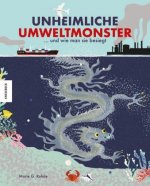
Dostawa
Doradca ds. zakupów
15 676 824 książek w 175 językach







Pokaż wszystkie języki (175)





Jednak się nie przyda? Nic nie szkodzi! U nas możesz zwrócić towar do 30 dni
 Bon prezentowy
O dowolnej wartości
Bon prezentowy
O dowolnej wartości
Bon prezentowy to zawsze dobry pomysł. Obdarowany może za bon prezentowy wybrać cokolwiek z naszej oferty.
Tropical Island Recovery - Cousine Island, Seychelles
 Angielski
Angielski
 413 b
413 b
30 dni na zwrot towaru
Mogłoby Cię także zainteresować


Tropical island species and ecosystems are threatened worldwide as a result of increasing human pressure. Yet some of these islands also lend themselves to restoration, as they are physically defined units that can be given focused attention, as long as resources are available and clear conservation targets are set. Cousine Island, Seychelles, is a tropical island that has received such intensive restoration. From a highly degraded island in the 1960s, the island has now been restored to what is believed to be a semblance of the natural state. All alien vertebrates have been eradicated, as have 25 invasive alien plants. Cultivated plants are now confined to one small section of the island. Poaching of nesting marine turtles has been stopped, leading to an increase in turtle breeding numbers. The shearwater population has increased in size with poaching activities under control. The Sooty tern has also returned to the island to breed. The coastal plateau has been restored with over 2500 indigenous shrubs and trees, which have now grown into a forest carpet. There are strict quarantine procedures on the island, keeping it free of rats, mice, various alien invertebrates and potentially invasive alien plants. Three threatened Seychelles endemic land birds (Seychelles warbler, Seychelles magpie robin and Seychelles white-eye) have been introduced and are thriving, with these introductions contributing to both the magpie robin and the white-eye being downgraded from CR to EN (the warbler remains at VU). Ecotourism, and nature conservation for the local inhabitants, have been introduced in a way that does not reduce the improved compositional, structural and functional biodiversity of the island. The result of the restoration effort appears to be sustainable in the long term, although challenges still remain, especially with regards to adequate clean water and a non-polluting power supply on the island. Cousine is thus paving the way in the art and science of tropical island restoration as a legacy for future generations.§There is no other book available on this case study. The need for the book arises from the fact that here is a positive note for conservation in these times of so much negative news on the state of our environment. More importantly, the book shows how such restoration should be done, and is therefore a model for many other islands around the world. The book has many illustrations so as to give the book wide appeal and literally to show what can done in terms of restoration. All this is based on much scientific detail, including many new data. The aim is, by way of example, to demonstrate how practical restoration, based on sound scientific research, can be carried out for the betterment of ecological integrity and ecosystem health.Tropical islands around the world are losing much of their biodiversity. Cousine Island, Seychelles, is a remarkable example of recovery which runs countercurrent to this trend of tropical island impoverishment. From a highly degraded island in the 1960s, Cousine Island is now a revitalized carpet of natural vegetation and a haven for nesting seabirds. All alien vertebrates have been eradicated, as have most of the invasive alien plants. Poaching of nesting marine turtles and shearwaters has stopped, leading to an increase in breeding numbers. The Sooty tern has returned to the Island to breed after an absence of 30 years. The coastal plain has been restored with indigenous trees, bringing back the historic forest type. Rats, mice and crazy ants, and other alien organisms, are kept off the Island by strict quarantine measures. Three threatened Seychelles endemic land birds (Seychelles warbler, Seychelles magpie robin and Seychelles white-eye) have been established and are breeding successfully. Overall, the Island restoration programme has improved the compositional, structural and functional biodiversity of the island. The coral reefs are also recovering after the mass coral bleaching event at the end of the last century. Cousine Island is thus paving the way in the craft and science of tropical island restoration as a legacy for future generations.§This book is about the recovery of Cousine Island and its natural history, told in much detail and with profuse illustration. It is for restoration ecologists, tropical ecologists, island enthusiasts, and for anyone interested in tropical island natural history.
Informacje o książce
 Angielski
Angielski




 Jak kupować
Jak kupować












